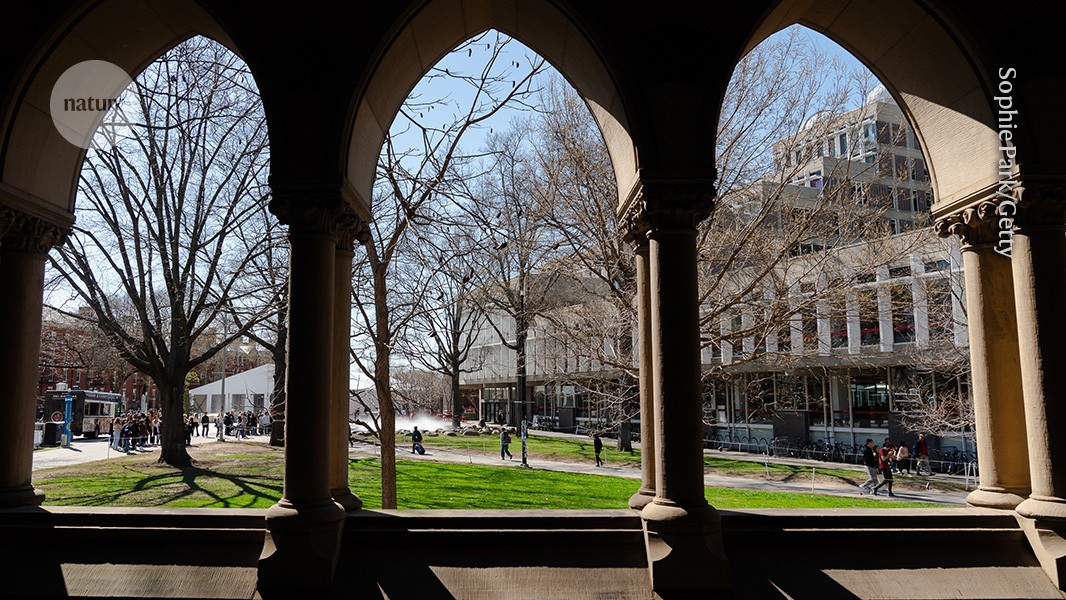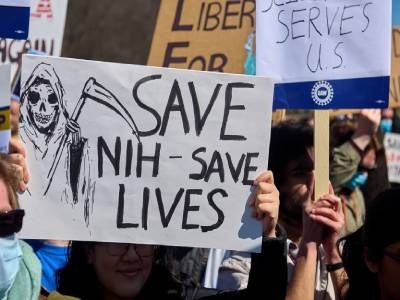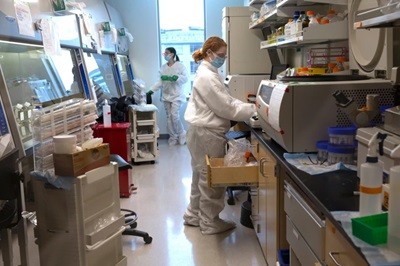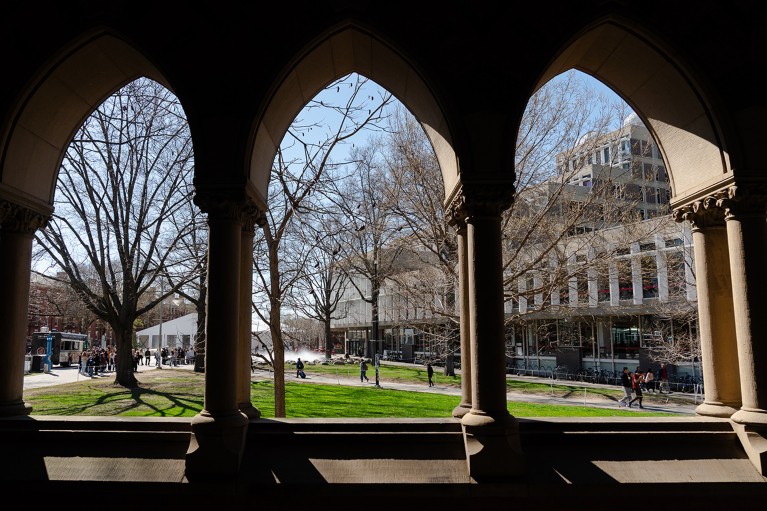
Harvard University in Cambridge, Massachusetts, is being targeted by the administration of US President Donald Trump in its bid to reshape higher education.Credit: Sophie Park/Getty
A test for lead contamination in water, a project to measure the oldest light in the Universe and a study of heat and drought’s effects on the brain are all on ice after US President Donald Trump’s administration halted research grants to several elite US universities.
US science-funding agencies have so far frozen or cancelled at least US$6 billion in research grants and contracts across a number of top universities (see ‘Science stalled’) as part of the Trump administration’s fight to reshape admissions, teaching and more at these institutions. Such actions have been justified in various ways, or not at all.
The Trump administration has alleged that both Columbia University in New York City, and Harvard University in Cambridge, Massachusetts, failed to stop “antisemitic violence and harassment” on their campuses during protests over the war in Gaza. Funding at the University of Pennsylvania (UPenn) in Philadelphia, was halted, with the Trump team citing a transgender athlete who swam on the institution’s women’s team in 2022 (Trump issued an executive order on 20 January saying that such activities deprive women of “dignity, safety, and well-being”.) The reasons for funding freezes at Cornell University in Ithaca, New York; Princeton University in New Jersey; and Northwestern University in Evanston, Illinois, have not been communicated publicly.
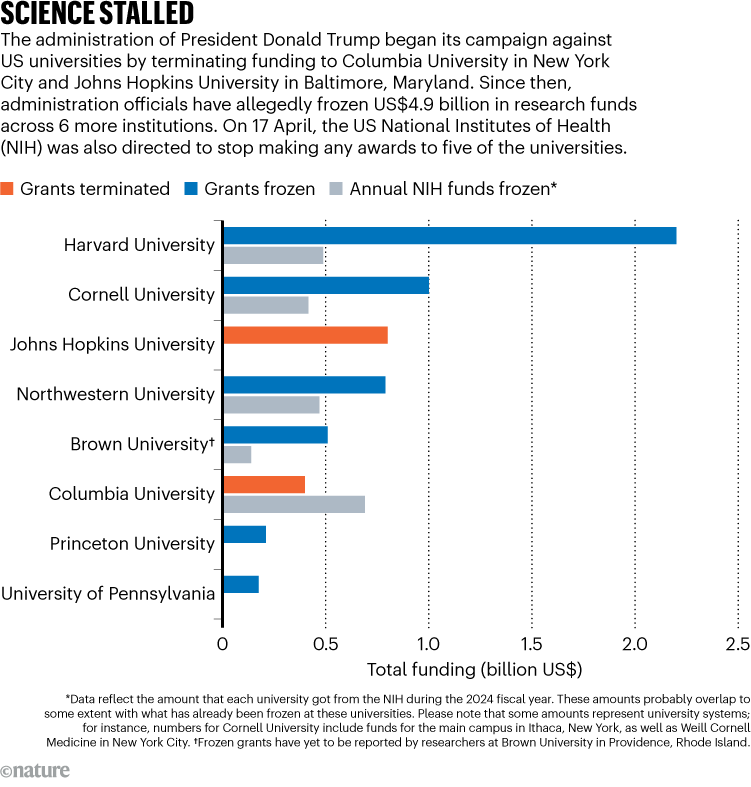
Source: Data from Trump administration announcements, media reports and NIH RePORT
The Trump team has sent demands to Harvard and Columbia, such as installing more-rigorous student discipline, which it says they must meet to restore funding. Columbia initially yielded, but Harvard did not, and is now suing the administration. More than 200 university presidents have since signed a letter opposing “unprecedented government overreach”.
Trump and his Republican allies have long alleged that elite universities are indoctrinating their students with left-wing ideologies. The president signed an executive order yesterday requiring accreditors — whose evaluations determine whether US institutions can receive federal funds — to prioritize “intellectual diversity” at universities. Scientists are now caught in the crosshairs, as the Trump administration uses federal grants as leverage in its fight.
The White House did not respond to Nature’s request for comment.
Labs on the brink
Last September, the US National Institutes of Health (NIH) awarded epidemiologist Marianthi-Anna Kioumourtzoglou’s team at Columbia a 3-year, $4.2-million grant to investigate the potential impacts of co-occurring natural disasters such as heat, drought and wildfires on brain function. On 10 March, she was told that the grant had been terminated.
More than six weeks later, Kioumourtzoglou’s pay remains steady, but her graduate students have lost their income and one of her postdocs stands to lose their funding after June. Kioumourtzoglou has participated in faculty protests calling on Columbia’s leaders to stand up to the Trump administration. “If we lose academic freedom and freedom of speech, what does research even mean?” she asks.
How Trump 2.0 is slashing NIH-backed research — in charts
Kioumourtzoglou hails from Greece and has thought about leaving the United States, but she isn’t ready to give up. “Someone has to stay and fight,” she says. “If we all start leaving, then who’s left?”
Some laboratories are already being shut down because of the cuts. When Trump came into office, about 15 people, including political scientist Heather Huntington, worked in a development-research lab at UPenn. They studied topics such as education, governance and land use in low-income countries with the goal of fostering sustainable development. Now, after the termination of several million dollars in grants to the lab from the US Department of Defense (DoD) and other agencies, the lab is winding down.
Huntington has already had to terminate several positions and rescind job offers. By the end of August, she says, only two people will be left, including herself. It’s hard to make sense of the decision to cut the funding, she says. “It’s such a small percentage of the US budget, and it’s not going to show up in anyone’s tax bill,” she adds. “And yet the ramifications are immense.”
The DoD and NIH did not respond to Nature’s request for comment before this story was published.
No explanation
Julius Lucks, a chemical and biological engineer at Northwestern, wants to give people safer water in their homes. He has been developing a simple test, which relies on microorganisms’ innate ability to detect lead and can quickly catch contamination in water flowing from lead pipes. The project has been rolling out across Chicago, Illinois, where residents can put drops of their tap water onto Lucks’s test kits to see whether it’s safe to drink. But, on 9 April, he and his colleagues received notice from their funder, the DoD, to immediately stop work on the project. They were not told why their research was put on hold.
In many cases, scientists have received little to no communication from the administration. “They just said ‘we’ve basically stopped this grant, and you have to stop working on it today’,” says David Muller, a physicist at Cornell. Three of his DoD grants have been frozen for weeks without explanation.
These US labs risk imminent closure after Trump cuts


